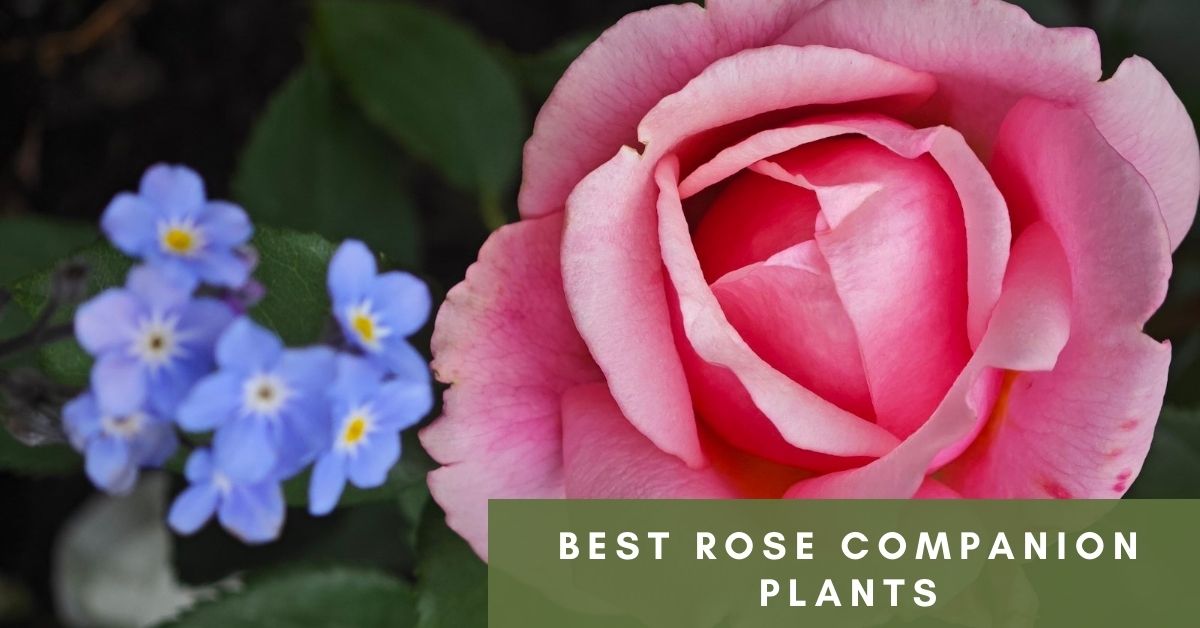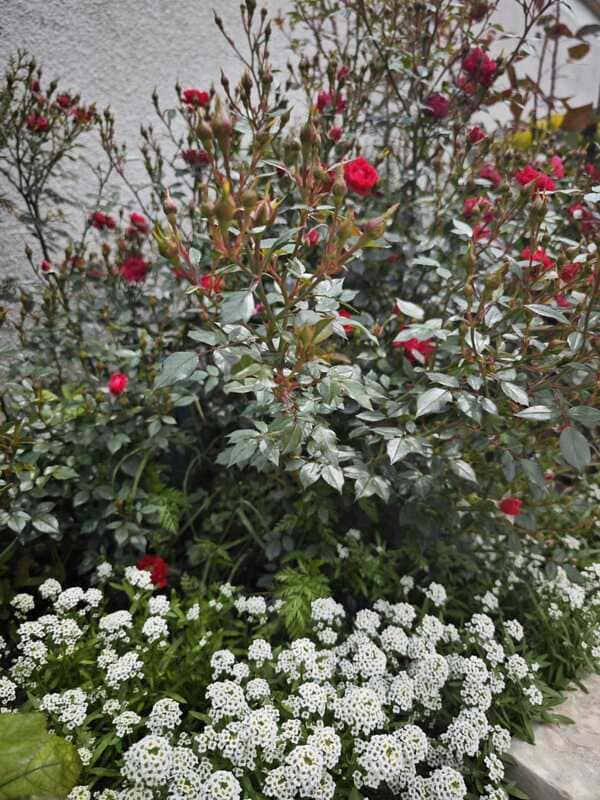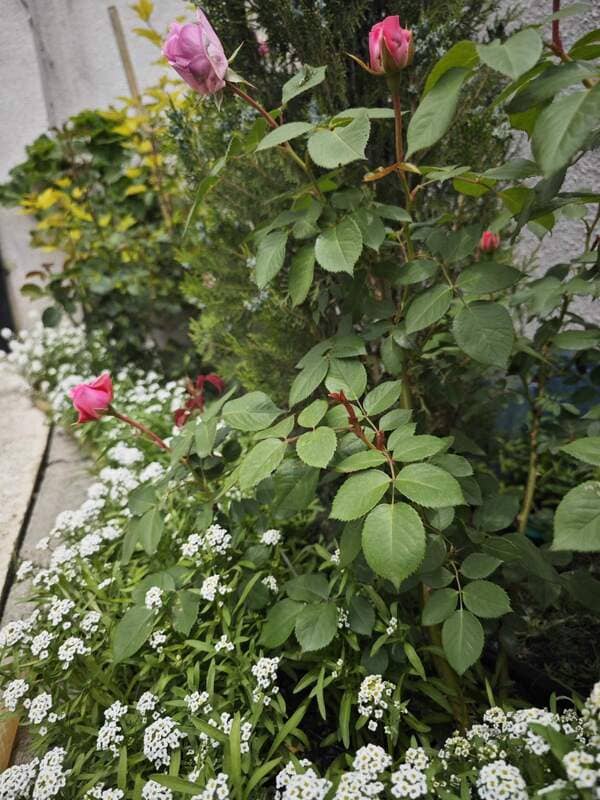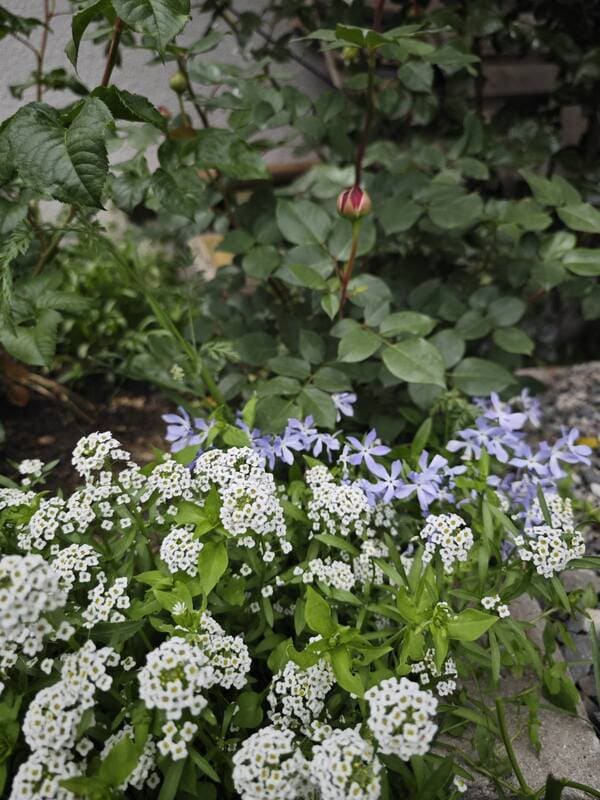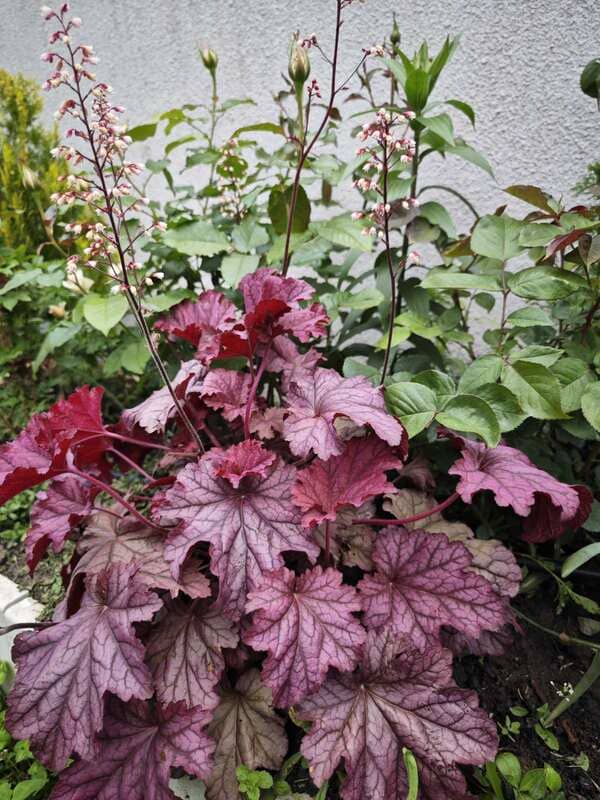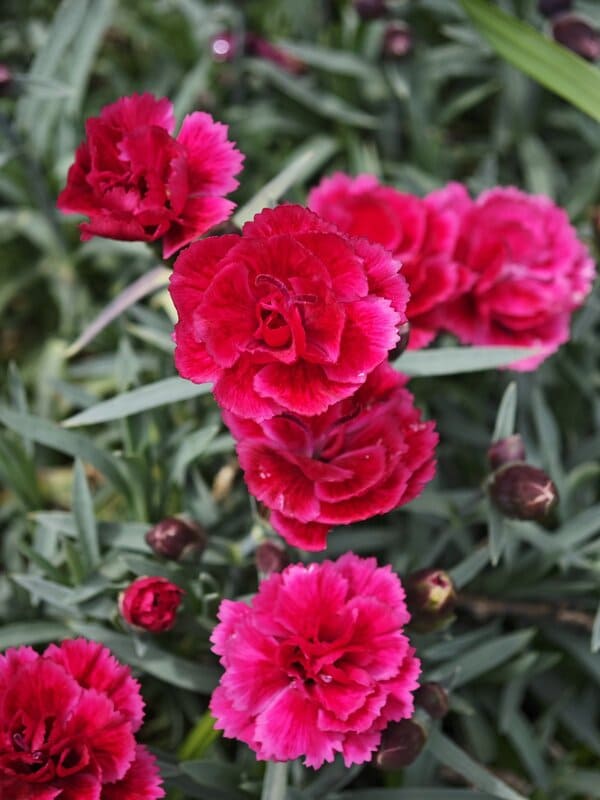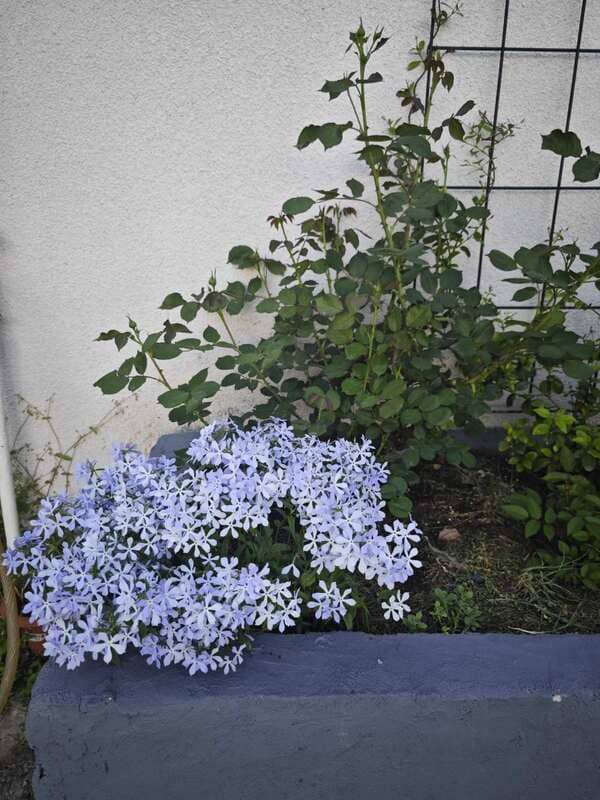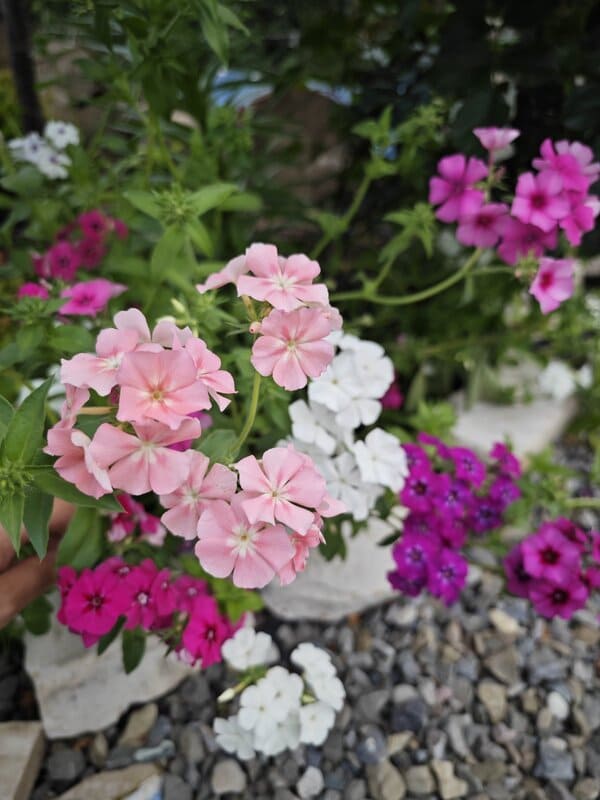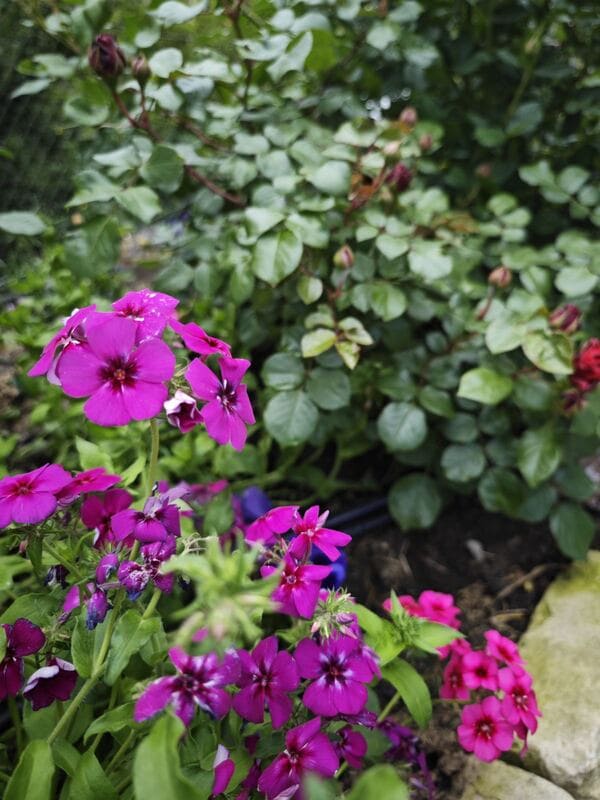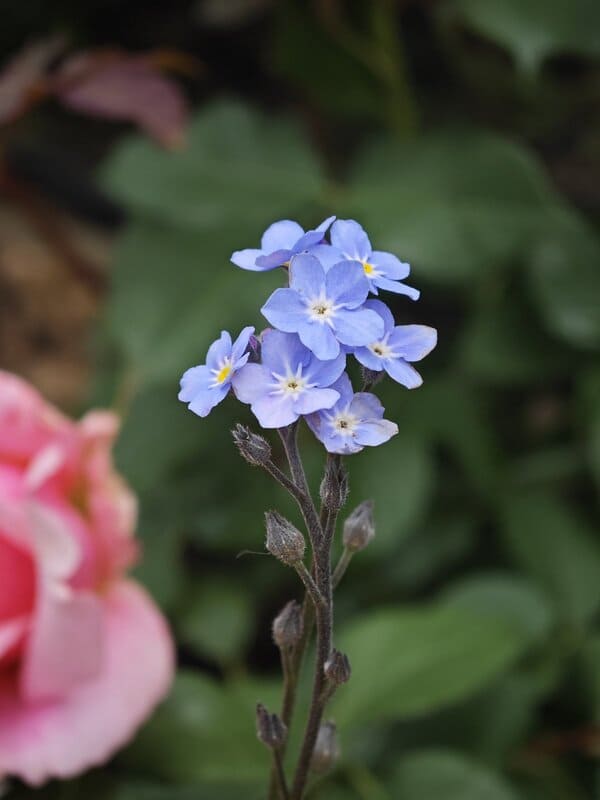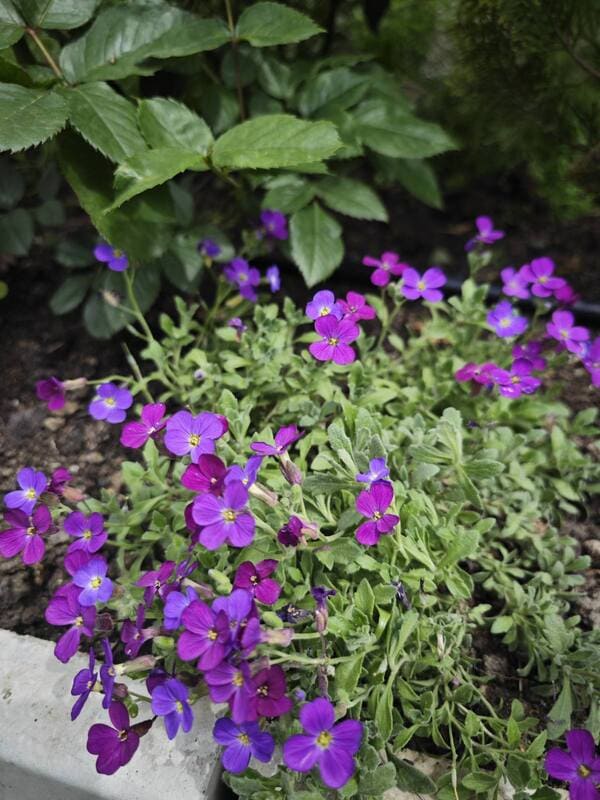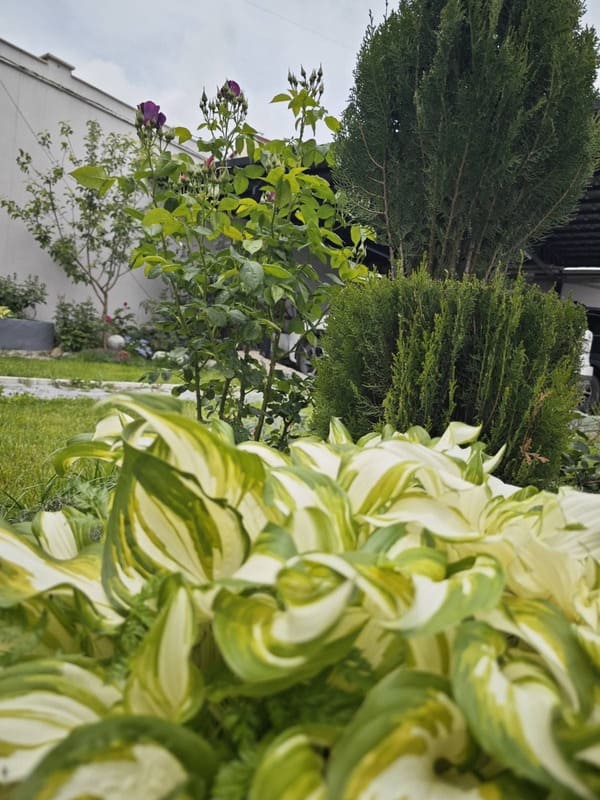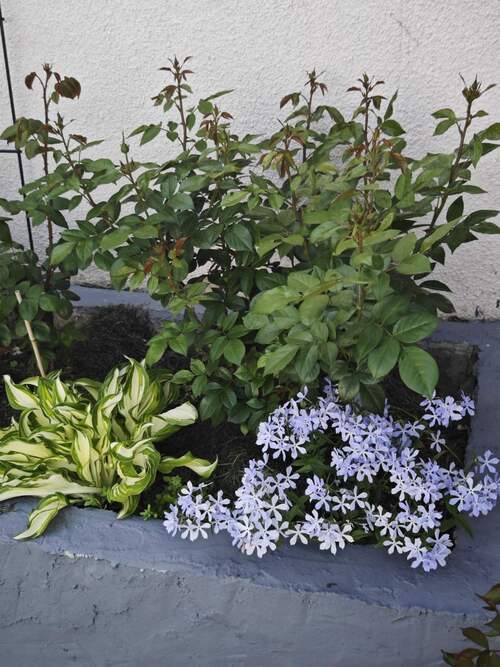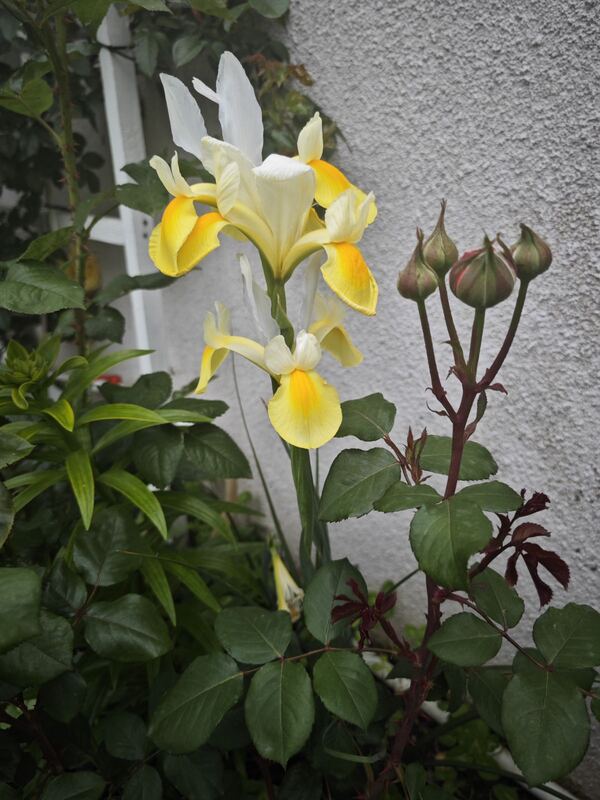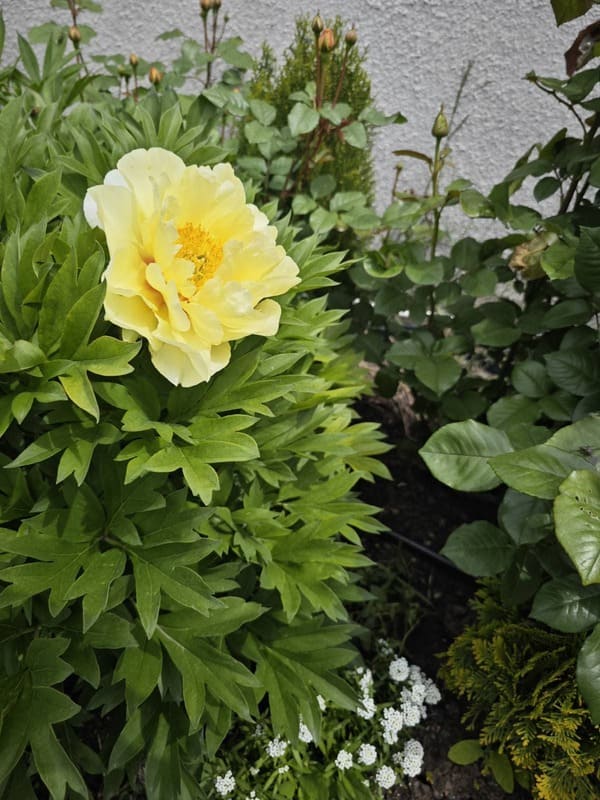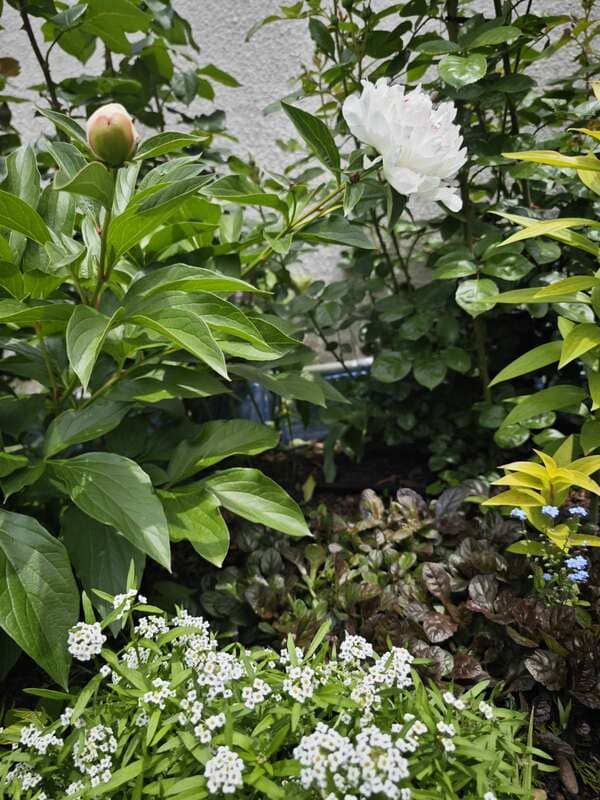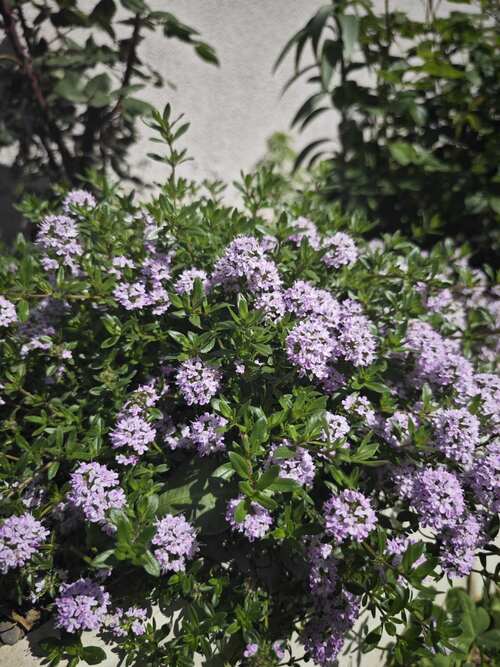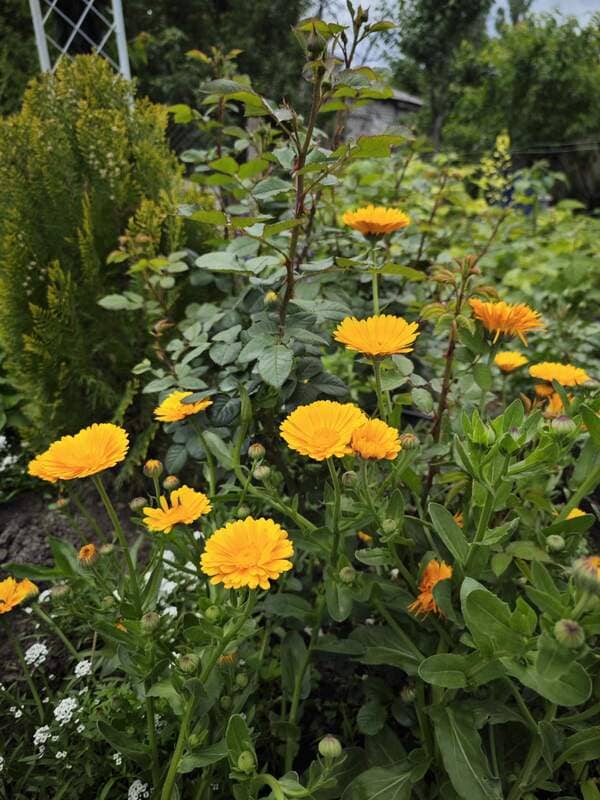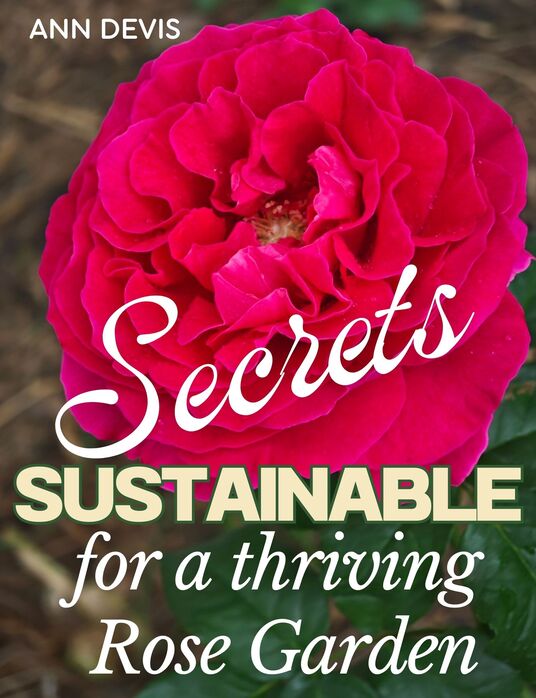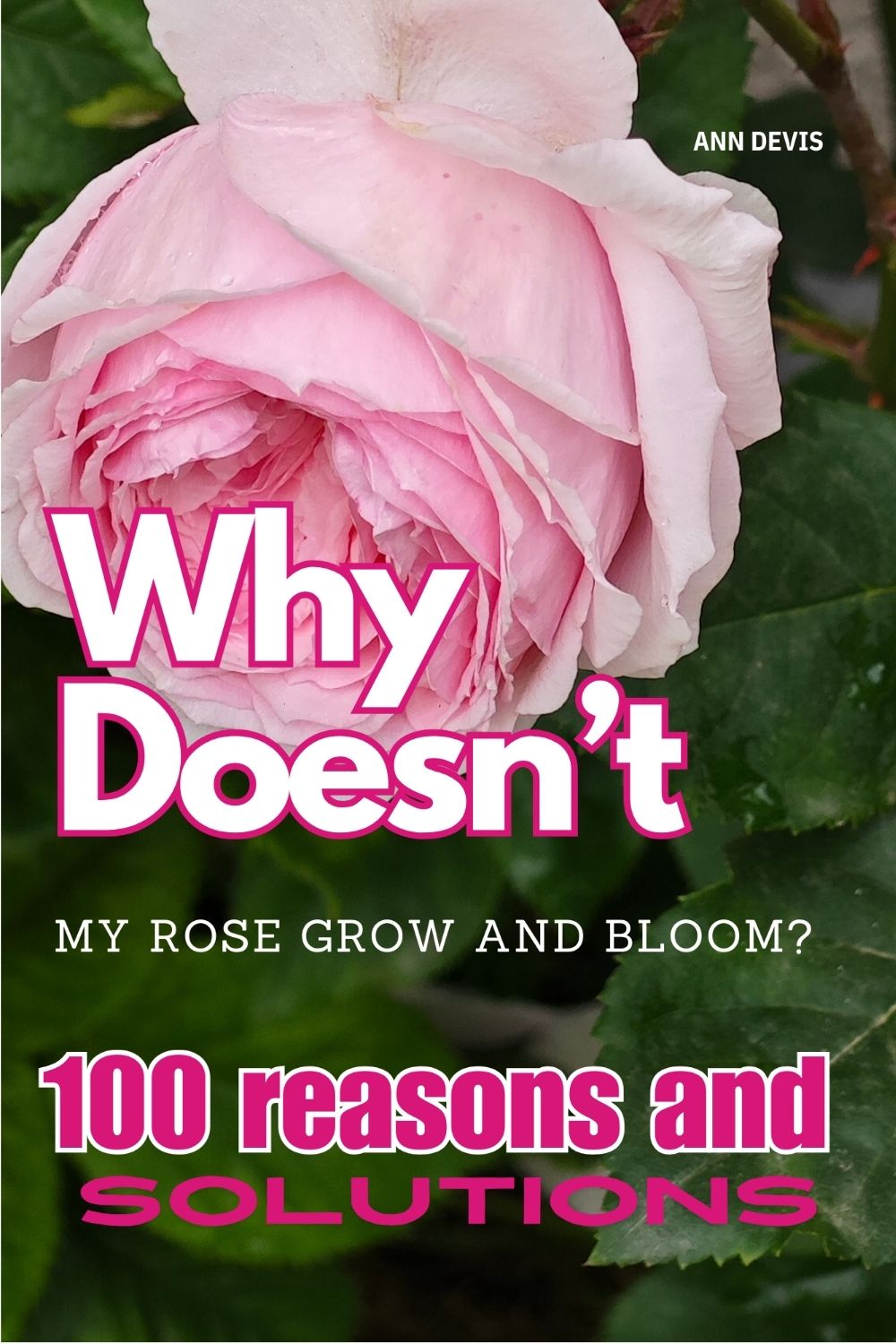Roses are undoubtedly the luxurious queens of the garden, but every queen needs a loyal retinue. The right companion plants can transform your rose garden into a vibrant, harmonious masterpiece. They do more than enhance beauty; they cover bare stems, suppress weeds, and attract beneficial insects like bees and butterflies. Here, I’ll share my favorite companion plants for roses and why they are indispensable in my garden.
Enhancing Beauty and Covering Bare Stems
Companion plants add a finishing touch to your flowerbed, much like a frame enhances a picture. They cover the bare stems of rose bushes, filling your garden with colors and textures that complement the roses’ beauty.
Weed Suppression and Pest Control
Companion plants prevent weeds from taking over by covering the ground around your roses. Additionally, some companions can repel harmful insects and attract beneficial ones, creating a healthier environment for your roses to thrive.
Sweet Alyssum – The Sea Foam of the Garden
With its delicate, sea foam-like flowers, Alyssum is an excellent ground cover for roses. This unpretentious plant blooms from early spring until late autumn, creating a continuous carpet of beauty. It self-seeds, making it a low-maintenance choice that returns year after year. I remove the old plants in early spring, and new Alyssum emerges, ready to surround my roses again.
Heuchera – A Touch of Red Elegance
Heucheras, especially the red varieties, are a personal favorite. Their brightly colored, intricately carved leaves remain decorative throughout the season, strikingly contrasting the roses. Heucheras are easy to propagate by dividing the bush, so a couple of good plants can soon multiply into a vibrant collection.
Carnations – The Unfussy Bloomers
Carnations are among the most low-maintenance plants you can have. They bloom all season long and can thrive in one spot for many years with minimal care beyond regular watering. Their persistent and vibrant blooms make them perfect companions for roses.
Phlox – A Kaleidoscope of Colors
With its lush and bright flowers, Phlox is an excellent companion for roses. I particularly love phlox subulata, which forms a fragrant blue cloud in spring and sometimes blooms again at the end of summer. Other varieties of Phlox, which I can’t recall by name, are equally beautiful and festive, attracting butterflies and adding magic to the garden.
I found a fantastic Volcano phlox variety for you. Just look at what a miracle.
Forget-Me-Nots – Spring's Delicate Beauty
Forget-me-nots appear in early spring, creating blue clouds in the flower beds before the roses have fully leafed out. Although they must be removed after flowering to maintain the garden’s appearance, they self-seed and reliably return each spring.
Aubrietta – The Year-Round Carpet
Hostas – Luxurious Foliage Companions
Hostas are luxurious companions for roses, with their lush foliage providing a beautiful backdrop throughout the season. In summer, they also produce attractive blooms, adding another layer of interest to your garden.
Pansies – The Cheerful Bloomers
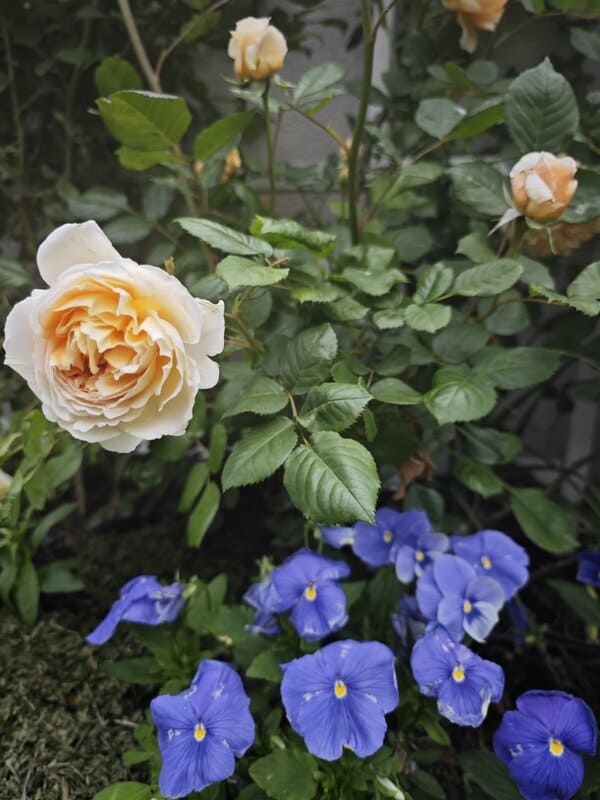
Pansies, with their cheerful and colorful blooms, are perfect for adding color to your rose garden. These hardy annuals can fill gaps between rose bushes, creating a seamless tapestry of blooms. Pansies are also easy to grow and care for, making them a delightful addition.
Accents and Highlights
Irises – A Touch of Pinterest Inspiration
Inspired by stunning images on Pinterest, I recently planted bearded irises. These plants add a luxurious touch to the garden and make excellent companions for roses. My long-time favorites, the bulbous irises, also complement roses wonderfully.
Lilies – The Royal Neighbors
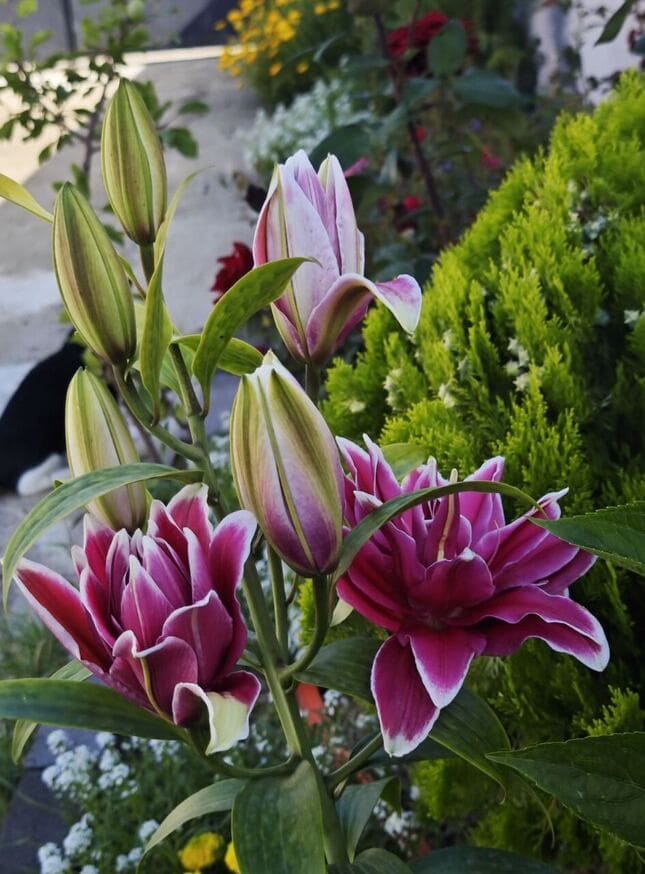
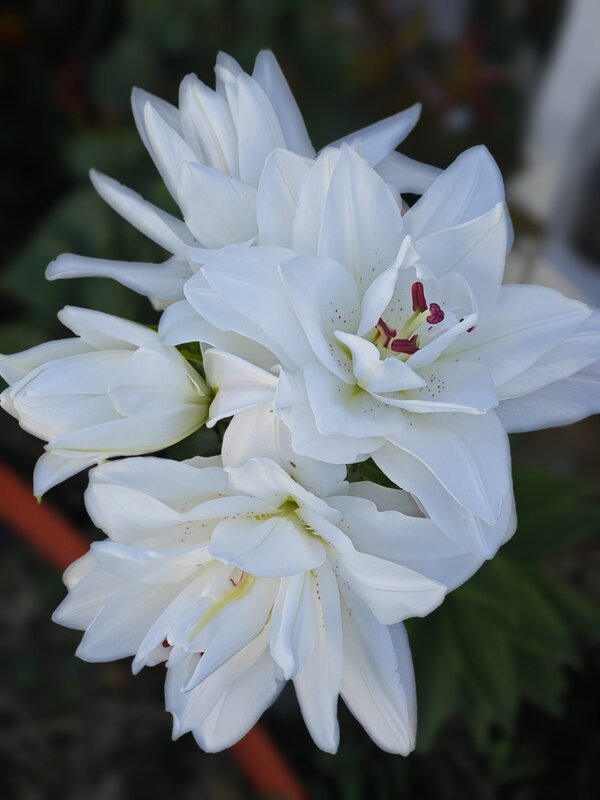
Lilies, huge hybrid varieties, look regal next to roses. However, their strong fragrance might not be to everyone’s taste, so consider this when planting them.
Delphiniums – The Majestic Spires
Delphiniums add height and drama to your rose garden with their tall spires of blue, purple, pink, or white flowers. These stunning perennials bloom in early summer, complementing the roses’ majestic presence. Delphiniums attract butterflies and bees, creating a vibrant and dynamic garden ecosystem.
Peonies – The Festive Predecessors
Peonies bloom slightly earlier than roses, adding a festive touch to the garden. Their large, lush blooms create a stunning display. Just be mindful of their size when planting them next to roses, as both plants can be larger than anticipated.
Sage – The Multi-Functional Beauty
Sage is an excellent companion for roses due to its aromatic leaves and lovely purple flowers. It deters pests like aphids and beetles and attracts beneficial insects like bees. Sage thrives in the same well-drained soil that roses love, making it an excellent and practical addition to your garden.
Herbaceous Helpers and Colorful Additions
Thyme – The Aromatic Ground Cover
Thyme is a fantastic companion plant for roses. Its low-growing, aromatic foliage forms a dense ground cover that helps suppress weeds and deter pests. Thyme’s small, pink, white, or purple flowers attract beneficial insects like bees, enhancing the health of your garden.
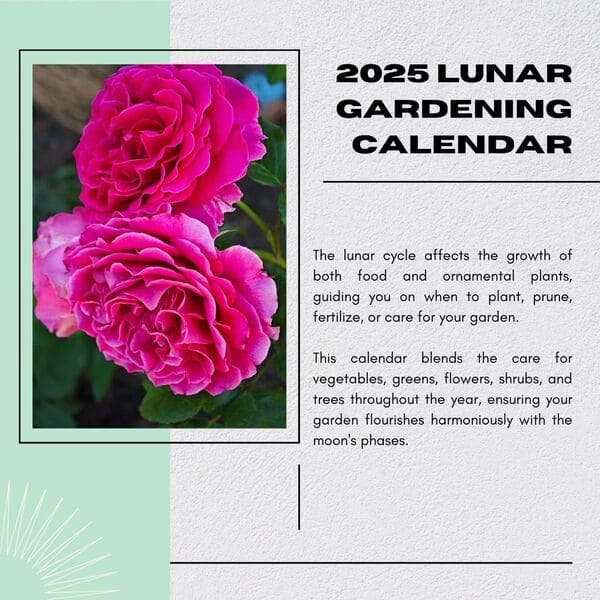
Get Your Free Lunar Gardener's Calendar 2025!
Join the Lunar Gardening Revolution! Subscribe now to receive our exclusive Free Lunar Gardener’s Calendar for 2025. Harness the power of the moon to optimize your planting, nurturing, and harvesting.
Lavender – The Fragrant Protector
Thyme is a fantastic companion plant for roses. Its low-growing, aromatic foliage forms a dense ground cover that helps suppress weeds and deter pests. Thyme’s small, pink, white, or purple flowers attract beneficial insects like bees, enhancing the health of your garden.
Calendula – The Bright Protector
Calendula, also known as pot marigold, is a bright and cheerful addition to any rose garden. Its vibrant orange and yellow flowers bloom profusely, adding a splash of color while repelling various pests like aphids and nematodes. Calendula also attracts beneficial insects, including ladybugs and hoverflies, which help control aphid populations.
Frequently Asked Questions
Consider planting vibrant flowers like geraniums, petunias, or snapdragons alongside your roses. Their colorful blooms complement the roses, creating a dynamic garden display.
Herbs such as basil and rosemary are popular for their pest-repelling properties and aromatic qualities. They naturally deter pests while enhancing the overall fragrance of your garden.
Yes, companion planting improves air circulation and creates a healthier microenvironment, which can reduce the risk of diseases like black spots and powdery mildew.
Incorporating edible plants like garlic, chives, or even strawberries can enhance garden aesthetics and offer a seasonal harvest.
Ground covers such as creeping thyme or sedum help suppress weeds, retain soil moisture, and add texture to your garden.
A balanced layout starts with understanding your plants’ growth habits. Space your roses and companion species evenly, considering their light and water requirements, to create a harmonious garden bed.
Native wildflowers such as coneflowers and black-eyed Susans work wonderfully with roses by enhancing biodiversity and thriving in local climates.
Plants with deep, fibrous roots help aerate and drain the soil, which benefits roses by improving nutrient absorption and reducing waterlogging.
Absolutely. Adding fragrant companions like lavender or scented geraniums near your roses can enhance the overall aroma of your garden.
For a budget-friendly approach, opt for low-maintenance plants such as marigolds, nasturtiums, and select herbs.
Let's create something beautiful
Companion plants enhance the visual appeal of your rose garden and contribute to its health and vitality. Many plants can complement and support your roses, from the low-maintenance beauty of Alyssum and carnations to the fragrant protection of thyme and lavender and the vibrant presence of sage and calendula. What are your favorite rose companions? Share your experiences in the comments!
You can create a breathtaking, functional, and beautiful garden by carefully selecting companion plants. Happy gardening!

